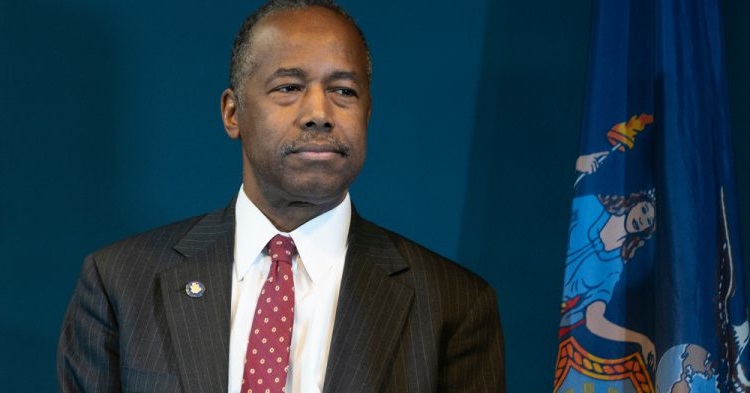Ben Carson a former United States Secretary of Housing and Urban Development and a retired neurosurgeon, made his opinion of slavery reparations known. In an op-ed piece for the Washington Post, Carson, who is himself African American, called the idea “un-American.” Carson believes that slavery reparations are not a good idea, and he cited a few reasons for his belief. First, Carson made the point that “anti-poverty” stipends would ignore the white families who are living near or below the poverty line, and those reparation payments would inevitably breed more racism. Carson also believes that the racism discussion has undergone a shift away from racial equality into an area where groups are singled out solely by race, and individuals are rewarded or penalized based only on the race of which they are members. Carson termed this as a move from “equality to equity.”
Carson believes that the notion of government benefits based only on race “doesn’t work,” particularly in a country whose ideals are based on equality and justice. In practice, Carson cites Lebanon, Rwanda, and the former Yugoslavia as examples of countries that have seen the negative impact of racial or ethically based governmental ideals. Carson stated that treating people differently based on race used to be called racism. The “equality to equity” narrative shift into identity politics has made it difficult for many to see that this still is racism. Additionally, Ben Carson believes that white people living today were not even born during those slavery years. Holding today’s white population accountable for what their ancestors did centuries ago would be “unjust,” according to Carson. In that same train of logic, the ancestors of slaves would not receive payments for the work their ancestors did centuries ago.

Groups in favor of reparations offer a different viewpoint. Many believe that the ancestors of slaves were denied equal opportunities in much the same way their ancestors were denied payment for, through the use of forced labor, building the United States into what it is today. The House of Representatives recently voted to move forward with the bill, H.R. 40. This bill would call for a study to determine the long-term negative effects of slavery, and to determine if ancestors of slaves are entitled to government compensation, and if so, how much. The bill has been in “storage” for thirty-two years. Carson believes that the shift in the discussion from equality to equity may open up the avenue to pass legislation that pays unpaid wages to descendants of slaves. Carson believes that what he calls race-based victimization narratives have already proven that they do not work. What these moves ultimately accomplish is to demonize certain groups of people. These notions get away from Dr. Martin Luther king’s principle of judging people by the content of their character, rather than the color of their skin.
In Carson’s view, the more practical and effective solution is to focus on coming up with reforms that create and restore decent-paying jobs to working-class American citizens. An emphasis on strengthening family, and putting a priority on student achievements are actions that have shown evidence of being more effective solutions. Carson uses himself as an example. He notes that he has of course experienced racism, but he has been able to achieve much more in his lifetime than what those who believe in victimization agendas would think possible.






